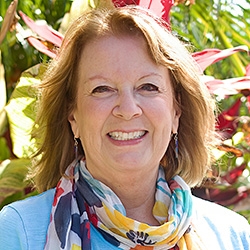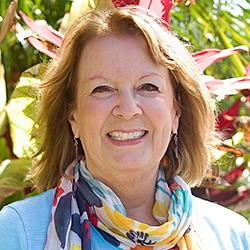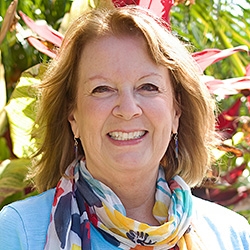

Search Results: nonviolence
-
Raj Gil offers tools and dialogue to help you respond to anger with awareness & care in the moment.
-
Interactive dialogue addresses common questions for new NVC facilitators and trainers.
-
Exploring how to share NVC in a school environment where others may not yet understand its value.
-
Cunningham explains participatory/onlooker consciousness, plus feelings, needs, and NVC dialogues.
-
Exploring how to keep NVC natural and authentic without sounding mechanical or formal.
-
Fear in dealing with a neighbor's 'wastebasket talk.' Only leaving or interrupting stops the flow.
-
Listen to this audio to learn the value of focusing on needs in an NVC model, either for the first time or as a refresher course. Living from a needs-consciousness creates abundance, clarity and choice. Using three examples from participants, Mary guides the group towards identifying and then connecting with the needs of both parties involved in each situation. It becomes clear very quickly that people choose different ways to support their needs; and many times they have the same needs in a given situation. When we understand this, we are able to create peace in our relationships and negotiations.
“Everything someone does or says is an attempt to meet a need,” says CNVC Certified Trainer Mary Mackenzie. This simple statement is a foundational understanding in Nonviolent Communication; once you gain skills at living in a “needs-consciousness” you will literally change your life and your perception of the world, and improve all of your relationships.
-
Discover how Nonviolent Communication helped integrate spirituality into daily life and work.
-
See how consciousness evolves and links to NVC using Wilber’s stage development ideas.
-
Listen to this newly remastered audio with seasoned Life Coach and CNVC Certified Trainers Martha Lasley and Dian Killian, to explore how you can "be the change" in your life, to live fully in integrity with your values in your work, community, faith and social action groups.
-
The wisdom which NVC is based on is as old as humanity itself. This telecourse recording draws insights from NVC’s elder siblings of Taoism, Buddhism and indigenous culture to offer new ways of approaching common NVC ‘stuck’ places.
-
Learn to foster trust, peace, and cooperation in your family using Nonviolent Communication.
-
Practice real-life NVC dialogue and role-play to master the dance of authentic communication.
-
In this recorded telecourse, John Kinyon, world renowned CNVC Certified Trainer, offers an overview and practice with four elements of empathy – presence, understanding/meaning, need language and deepening into needs.
-
Balance self-passion and compassion with NVC tools to stay empowered and honor your own needs.
-
Master the conversational dance through real-life NVC role play, modeling, and dialogue practice.
-
Trainer Tip: The ways that we interact with our children shape the way they will interact in their world. How do your actions model compassion, tolerance, and love for your children?
-
In June, 1996, I had an epiphany. In a motel room in Indiana, the night before returning home from a solo camping trip in Michigan and Canada, I discovered how much I had lost in my life because of so fiercely protecting myself. Up until that day, bringing forth my vulnerable self was to be avoided at all costs, which kept me numb much of the time, disconnected from myself and from much of life. Alone in my room, I cried, I talked out loud, and I finally exclaimed to myself that I wanted to reclaim every last bit of my vulnerability, just like I had it as a child.
-
I want to hear others through the lens of the meaning their actions have for them rather than through the effect their actions have on me. The very root of empathy resides in this fundamental shift. Whenever someone’s actions are at odds with our own needs, most of us, most of the time, do the latter. In that way, we keep our attention on ourselves rather than on the other person. We cannot be in empathy when we are focused on how things affect us. Miki Kashtan poignantly shares about the challenges of empathizing with another when we really don't understand their actions.
-
Trainer Tip: The exchange of resources, that is, exchanging money for an item or service, is enhanced and better appreciated when we are connected to its personal value rather than its cost.
Quick Links

Stay in Touch!
We value your privacy, won't share your email address and you can easily unsubscribe any time.



















